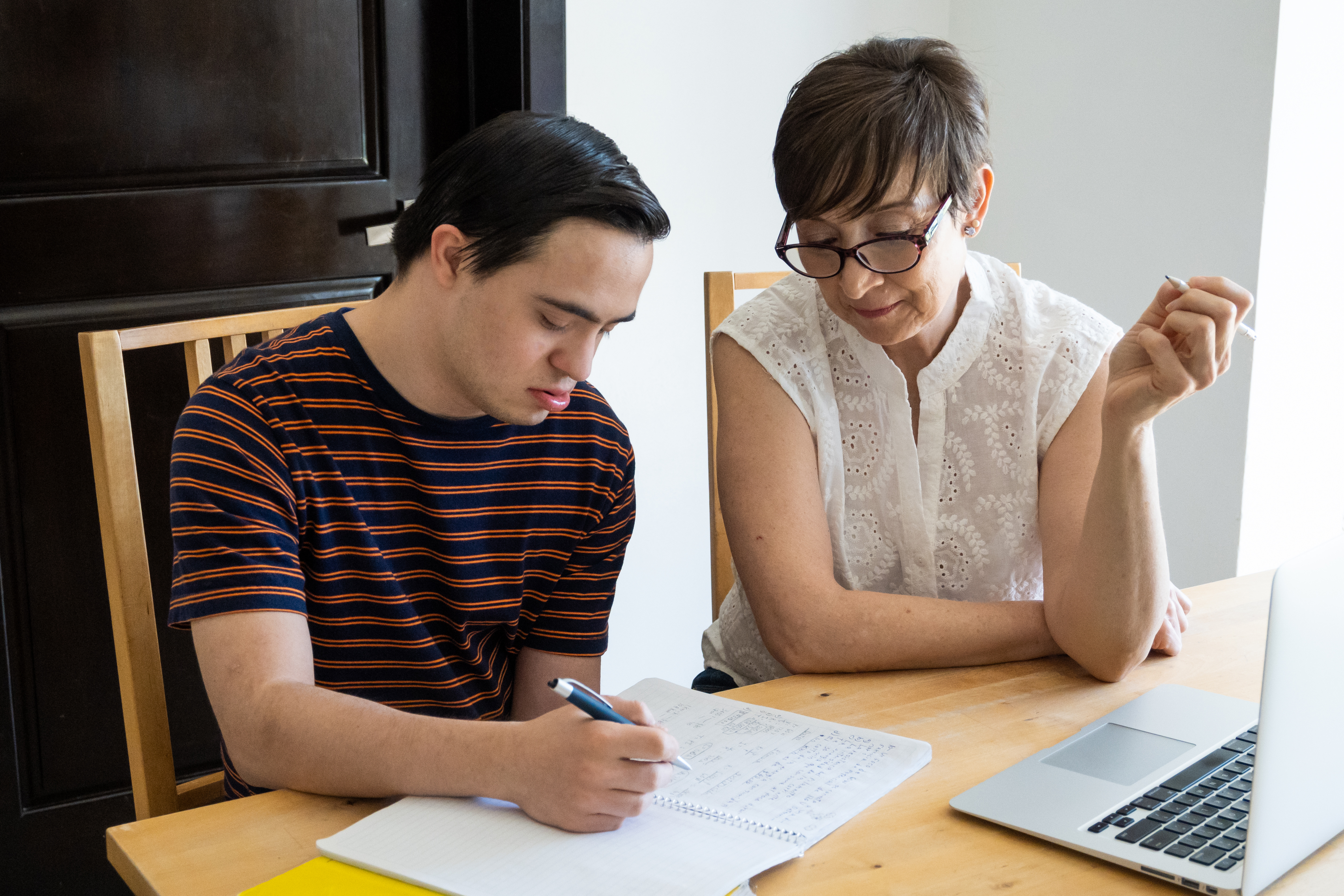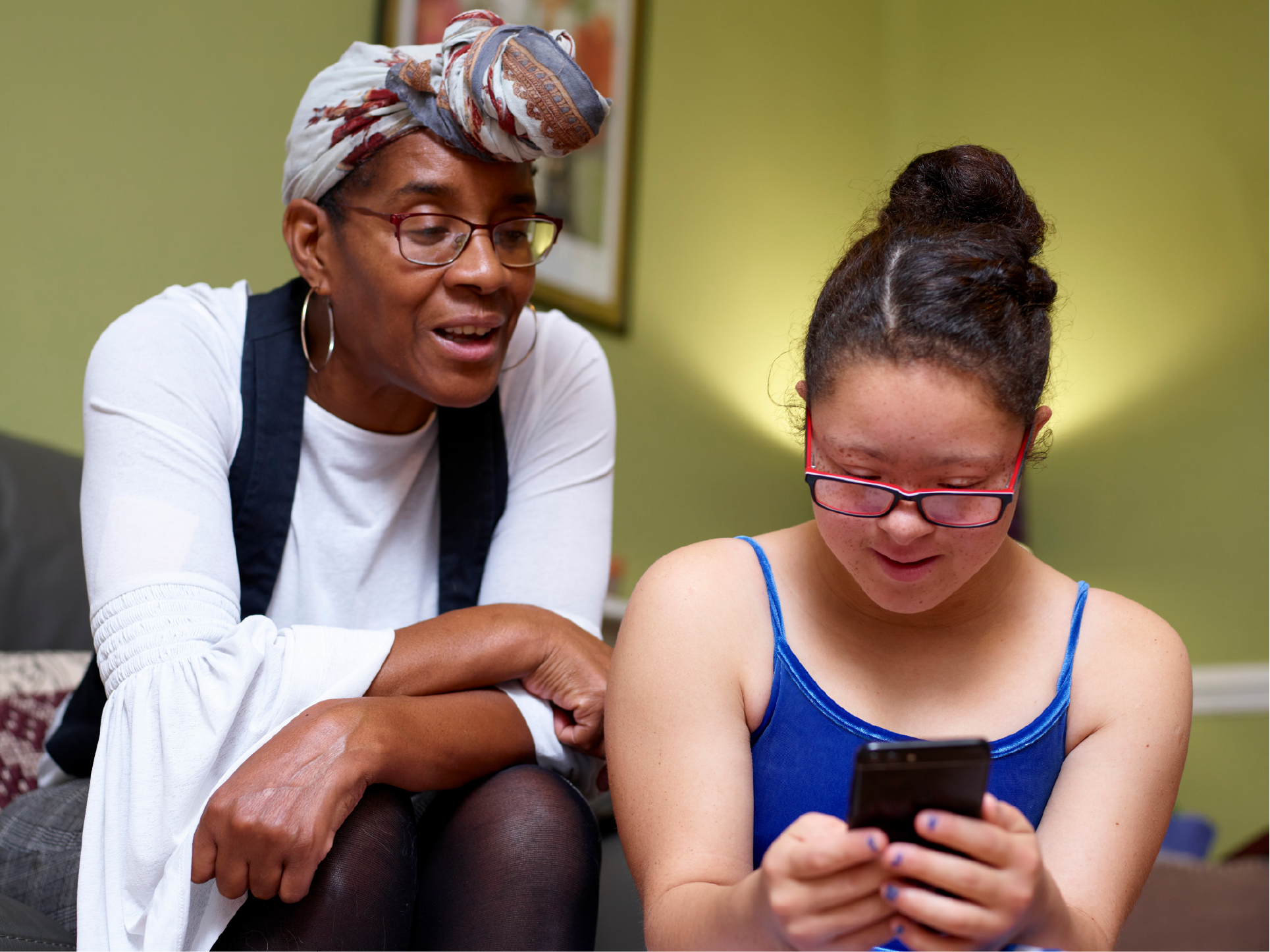KU researchers partner with state to better understand experiences of Kansans on disability services waitlist
LAWRENCE—Like many 24-year-olds, Katie Pine loves pop and country music, her job, and reading novels such as “The Hunger Games.” The Olathe, Kan., resident, who currently lives at home with her parents, would like to have her own apartment—roommate optional.

Kansas strives to support people such as Pine, who has an intellectual disability, to meet their career and life goals through the Home and Community Based Services (HCBS) program. However, Pine is one of more than 5,000 Kansans with a disability unable to access the services.
The HCBS program allows states to use Medicaid funds to offer a broad array of non-medical services not otherwise covered by Medicaid. The provided services, such as personal attendant services and other in-home supports, supported employment, and in-home specialized medical care, help people live and work in their community.
Kansans such as Pine who are on the waiting list face an extensive wait for services estimated to stretch as long as 10 years. This means that when people with intellectual disability transition out of education services at age 21, they often have no formal paid supports for years after leaving school. Without continued support, those individuals may begin to lose skills they’ve gained.
The Kansas University Center on Developmental Disabilities (KUCDD) and the Institute for Health and Disability Policy Studies, both based at the KU Life Span Institute, and the KU Center for Research on Aging & Disability Options (CRADO) in the School of Social Welfare are partnering with the Kansas Department of Aging and Disability Services (KDADS) to collect and analyze data on the waiting list to determine how to address the needs of people on the state’s waiting list for services effectively and efficiently.
One of the benefits of the HBCS program is that support services in one’s home are usually less than half the cost of residential care, according to figures shared by the Centers for Disease Control. “In other words, it is both more cost-effective and more desired by individuals for them to receive HCBS at home than to be placed into institutional care,” noted Jean Hall, a researcher on the project and director of the Institute for Health and Disability Policy Studies.
In Kansas, HCBS waiver programs are funded by a 60/40 allocated federal/state match. Each state oversees the approval process for waivers and can limit enrollment based on available funds. When the number of funded spots in HCBS programs are full, individuals are added to waiting lists.

“The waiting list in Kansas is long enough that often times, Kansans with intellectual or developmental disabilities can only receive services when they experience a crisis such as the death of a parent or caregiver,” said Evan Dean, associate director of community services at KUCDD and a researcher overseeing the project.
Dean said the ultimate purpose of the study of the IDD waiting list in Kansas is to provide information on how to best serve those who remain on the waiting list and to find how to prevent future backlogs from happening.
“People’s support needs can change a lot over 10 years, and then they are entering services when they are most vulnerable after a crisis,” Dean added. “It’s a big challenge for organizations providing services to determine how best to support the person in those situations.”
Landing on the waiting list can interrupt the health, independence, and development of an individual as they progress from education systems where there are many supports, on to adulthood, when they may be waiting for services, said Sean Swindler, a project manager involved in the research and a director community program development and evaluation at the Kansas Center for Autism Research and Training at KU.
The project is important because it addresses the right of everyone to be allowed to contribute and be a part of their community, Swindler added.
“People with disabilities have a rightful presence within our community,” he said. “They have the same rights as everybody else to live, work and play. And we have tools that can assist people with doing that with the IDD waiver program.”
Last fall, a legislative committee, the Special Committee on Intellectual and Developmental Disability Waiver Modernization, met to address HCBS waiver and consider alternatives. In the process, the committee heard testimony from officials from other states, researchers from KU, advocacy groups, parents, and individuals with disabilities affected by the waiver delays. Parents shared stories of being overwhelmed by the physical toll of being a caregiver 24-hours a day without support, as well as the cost of care, which can reach $50,000 a year. Some parents reported struggles with their own declining health as they too age while waiting for help to be approved.
Individuals on the waiting list also shared frustrations about wanting to live more independently. Among those providing testimony was Pine, who penned a letter describing her desire to see changes to the waiver system that would help those like her to be successful.

“We need to change and update the system in Kansas to allow me to live where I want to live and not have to wait on a long list to get the services I need to have to be successful,” she said. “As an individual with a disability, I should get to choose where I want to live, where I want to work, who I want to be friends with—and right now this system is not designed with all that in mind.”